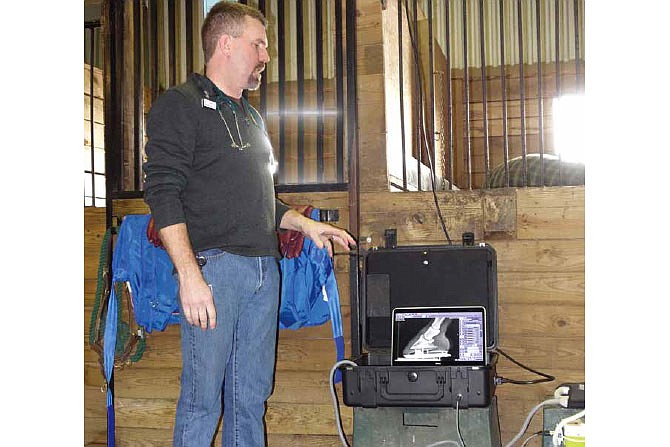Two Fulton businesses received grants that, combined, totaled nearly $300,000 from the U.S. Department of Agriculture's Missouri Rural Development program.
Central Missouri Meat and Sausage LLC received a $250,000 Value Added Producer Grant to assist in the processing and marketing of their locally processed pork, and William Woods University received a $40,000 Rural Business Development Grant to purchase equipment and supplies for its new Center for Equine Medicine.
"Central Meat and Sausage and William Woods University are both contributing great resources to the region by providing locally raised meats and new equestrian educational opportunities. We are proud to be a partner in assisting these projects as they continue to develop," said Janie Dunning, USDA rural development state director, in a written statement.
As she spoke to small gatherings at both businesses on Thursday, Dunning thanked both entities for taking the initiative to apply for the grants.
"We can offer all the money in the world," she said. "But if you don't have the right people behind it, it doesn't mean anything."
At Central Meat and Sausage, she praised the owners of the family-operated enterprise for bringing foods to the community that are neither overly processed nor full of additives. She praised their support of local farmers and addition of multiple new jobs to the Fulton area.
At William Woods University, Dunning praised the school for its historically excellent equine program. She also spoke to the advantage of providing funds to a school because the money reaches beyond the initial investment as students will take what they have gained and move out into the world.
In this case, the digital radiography system purchased with the USDA funds has a twofold benefit.
"The horses benefit because it elevates the quality of care they receive," said Paul Schiltz, veterinarian and director of Pre-Veterinary Education at WWU. "We can now provide diagnostics stall-side, which helps us handle injuries more efficiently."
Schiltz said students benefit from the technology by having the opportunity to become familiar with state-of-the-art veterinary medicine practices. He said regardless of what direction they may go in regard to the equine industry, they will have a better understanding of equine anatomy and injury because of the hands-on experience they can now receive.


